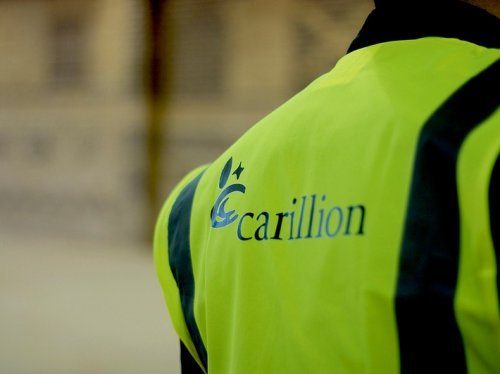Carillion inquiry report calls for break up of Big Four oligopoly

MPs investigating the collapse of Carillion have called on the Competiion and Markets Authority to “look at the break-up of the Big Four accountancy firms” and end the “parasitical relationship which sees the auditors prosper”.
The joint inquiry by the Work and Pensions and BEIS Committees were also scathing about the way Carillion was run, with the inquiry’s final report concluding that “the mystery is not that it collapsed, but that it lasted so long”.
The report also points the finger at Government, arguing it has “lacked the decisiveness or bravery” to address the failures in corporate regulation that allowed Carillion to become a “giant and unsustainable corporate time bomb”.
So far 2,300 people have been made redundant in the wake of Carillion appointing liquidators in January. A further 3,000 people are currently retained to enable Carillion to deliver its remaining services.

Carillion was building the Midland Metropolitan Hospital
“However, the auditors should also be in the dock for this catastrophic crash. They are guilty of failing to tackle the crisis at Carillion, failing to insist the company paint a true picture of its crippling financial problems. The sorry saga of Carillion is further evidence that the Big Four accountancy firms are prioritising their own profits ahead of good governance at the companies they are supposed to be putting under the microscope.”
The report calls on the Insolvency Service to “carefully consider” whether Carillion’s former directors breached their duties under the Companies Act and should be recommended to the Secretary of State for disqualification.
“Carillion used aggressive accounting policies to present a rosy picture to the markets,”, the report says, with the Wolverhampton-based group maintaining stated contract margins in the face of evidence that showed they were “optimistic”, and accounting for revenue for work that not even been agreed, enabled it to maintain apparently healthy revenue flows.

Carillion was building One Chamberlain Square in Birmingham
The report said that in its failure to question Carillion’s financial judgements and information, KPMG was “complicit” in the company’s “questionable” accounting practices, “complacently signing off its directors’ increasingly fantastical figures” over its 19-year tenure as Carilion’s auditor.
Deloitte was paid over £10m by the company to act as its internal auditor but were either “unable or unwilling” to identify the “terminal failings” in Carillion’s risk management and financial controls, or “too readily ignored them”. EY was also paid an eight-figire sum, receiving £10.8m for “six months of failed turnaround advice”.
PwC also provided advice to the company, its pension schemes and the Government on Carillion contracts. However, as the least conflicted of the four firms, and “as the Official Receiver searched for a company to take on the job of Special Manager in the insolvency, the oligopoly had become a monopoly and PwC could name its price”.
The inquiry report has suggested that possible outcomes of a Competition and Markets Authority investigation would include breaking up the audit arms of the Big Four, or splitting audit functions from non-audit services.









